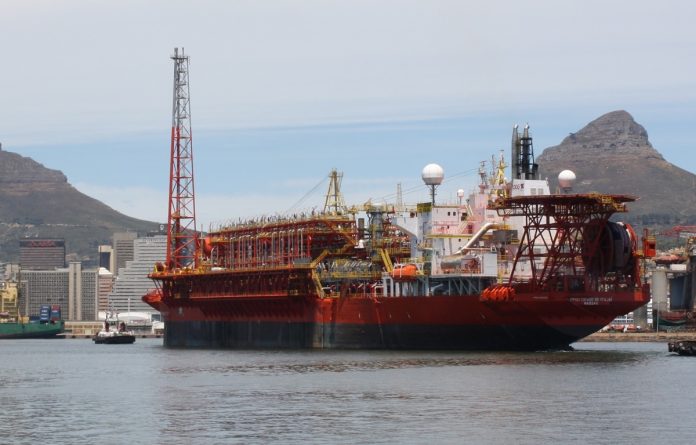
At a time when environmentalists are campaigning for more marine areas to be protected, the news about the approval granted for drilling for oil and gas off the coast of KwaZulu Natal will not be well received.
The Petroleum Agency SA has confirmed that the environmental authorisations have been granted by the Department of Mineral Resources to Italian oil and gas group ENI and Sasol South Africa. It enables them to proceed with conducting exploratory drilling in the Durban and Zululand basins. The total offshore area is about 4600km2.
Fishing Industry News Southern Africa has reported extensively about this project which from the start has attracted resistance and condemnation from numerous environmental groups and the public opposed to the exploration.
Drilling for Oil & Gas. Movie Maker Highlights Ecological Injustices
Sasol was originally granted exploration rights in November 2013 and has since collaborated with ENI which will be responsible for the operations. The plan is to drill six exploration wells along the KZN coast between Richards Bay on the north coast and Scottburgh on the south coast.
Known as Block236, drilling has been specified to take placed within two areas:
- a northern area of about 1717km2, which is located at its closest point, about 62km from the shore.
- southern area, about 2905km2, which is located at its closest point, 65km from the shore. The expected drilling depth is around 5100 metres.
They hope to locate massive oil and gas reserves under the seabed at depths of between 3800m and 4800m.
Seismic surveys
Seismic surveys have already been undertaken by PGS. According to the answer provided to a question put to the National Assembly in February last year, seismic surveying did not initially require environmental authorisation under the National Environmental Management Act 1998
“At the time of the application for the exploration right (that is, in September 2012), the environmental requirements were still regulated under the Mineral and Petroleum Resources Development Act (MPRDA). Consequently, the Environmental Management Programme (EMPr) to undertake the 2D seismic survey programme (work programme applied for) as required by section 79(4) of the MPRDA was compiled and submitted for approval.
“The said EMPr was supported by two specialist studies assessing the impacts of the proposed seismic surveys on marine fauna and on fisheries. Accordingly, an EIA was carried out prior to the granting of the right under the MPRDA dispensation and not under NEMA,” concluded the past (now late) Minister of Water and Environmental Affairs.
Making Waves. Likely Effects of Seismic Surveys on the Squid Resource and Fishery
Opposition
In early 2018 a public meeting organised by the South Durban Community Environmental Committee (SDCEA) along with other environmental groups opposing this exploration, was held in Durban.
Sasol’s upstream executive vice-president John Harris was there. He claimed it was not definitive that the oil and gas company would drill. It depended on the results of the seismic survey.
However, environmentalists were not convinced and believed the meeting was nothing more than a PR exercise for Sasol and ENI.
Mitigation?
It seems their fears are well founded. Questions raised about whether Sasol and ENI have put in place insurance for liabilities and blow-out protocols seem to have been conveniently overlooked, as has the rehabilitation obligations should there be an oil spill disaster.
Other concerns are the pollution and emissions caused by drilling operations, seabed and marine habitat destruction, significant impacts on the commercial fishing industry, adverse effects on marine life, including whales and dolphins, and high levels of fuel consumption and corresponding air emissions during the exploratory drilling phase.
Still time to object
ENI and Sasol were notified of the granting of the environmental authorisation on 29 August. There is no communication of such on either company’s website, nor the government departments involved.
Interested parties were advised by ENI’s environmental consultants, Environmental Resources Management (ERM), this week that they have until 30 September to appeal the Department of Mineral Resource’s decision or any aspect of it.



















